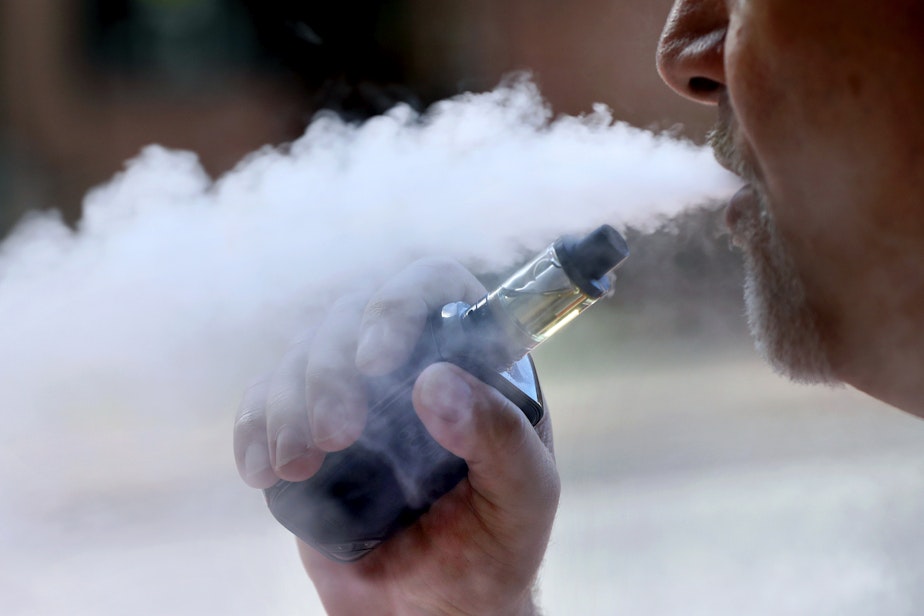Flavored vaping banned for four months in Washington state

The Wash. state Board of Health voted Wednesday afternoon to temporarily ban flavored vaping products, including flavored THC.
The decision comes after more than a thousand people have come down with a vaping-related lung illness. Eilis O'Neill reports.
When I arrived at the Board of Health meeting this afternoon, there were about one hundred people gathered outside the hotel where the meeting was taking place. They had signs that said things like "flavored vapor helped me quit smoking" or "Vaping saves lives. Would you prefer I smoke?"
About half the people protesting were actively vaping, so there was kind of that sweet smell of vapor flavors all around the hotel.
Once inside the meeting, it was completely full — standing room only —with mostly protesters.
As the vote approached and the outcome became obvious, some people walked out of the room angrily, and others stood up to beg for various kinds of reprieves.
The Board unanimously approved a ban on all flavored vapor products, including things like e-cigarettes or vaping pens.
They can't be sold in Washington state in stores or online, via the mail, etc.
The ban is effective as soon as the board files the paperwork, and it will last 120 days.
Retailers who sell vapor products will have to post signs warning customers of the risk of vaping-associated lung disease.
And manufacturers of the products will have to disclose all the ingredients they use.
The thinking is that if public health officials figure out exactly what causes vaping-associated lung disease, they can then recall all products that include that ingredient.
And health care providers will also have to report all cases of vaping-associated lung disease to health authorities within three days.
This ban was prompted by more than 1,000 people in the country who, since July, have been diagnosed with a lung disease traced back to vaping.
Eighteen of those people died.
In Washington state, seven people have gotten sick, although none have died.
This is a really serious condition. Kathy Lofy with the Department of Health described it at the meeting today:
She said, "Common symptoms of this condition include cough, shortness of breath, chest pain, nausea, vomiting, and/or fever, which can progress over days or weeks and can lead to respiratory failure."
Opponents of vaping said that vaping introduces a lot of people to nicotine, especially young people.
Those who oppose the ban said that not relevant, because people under 21 won't be allowed to buy any tobacco products at all, including vapor products, starting in January.
And the last thing I heard was just that a lot of store owners are really scared about what's going to happen to their businesses.
As for what's next, there are a few options.
Gov. Inslee has a bill he plans to introduce in the next legislative session that would regulate vapor products and how they're marketed.
The idea is that, if that bill becomes law, this emergency ban would either be allowed to expire, or the board could even come back and lift the ban.
If that bill doesn't become law, or for some other reason the Board of Health wants to continue the ban, it can pass an additional one-hundred-twenty-day emergency ban when this one expires.





